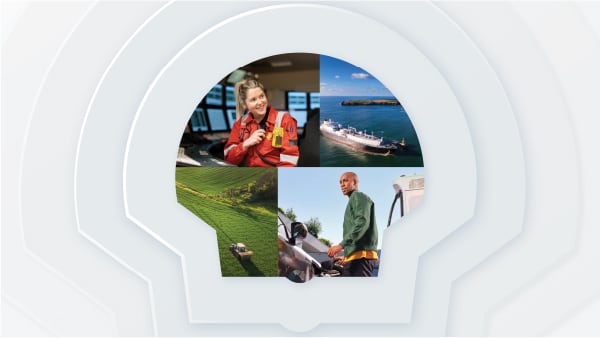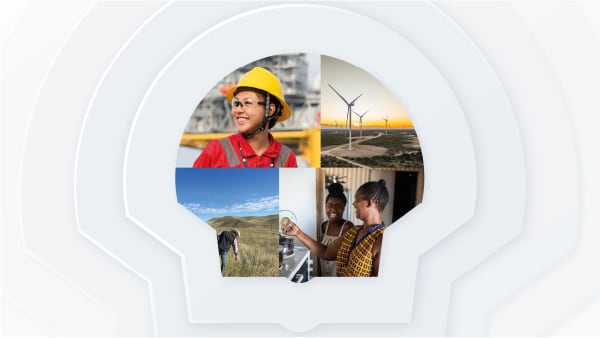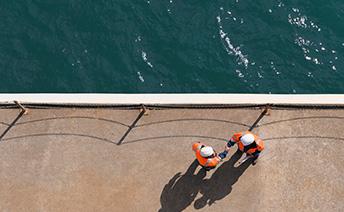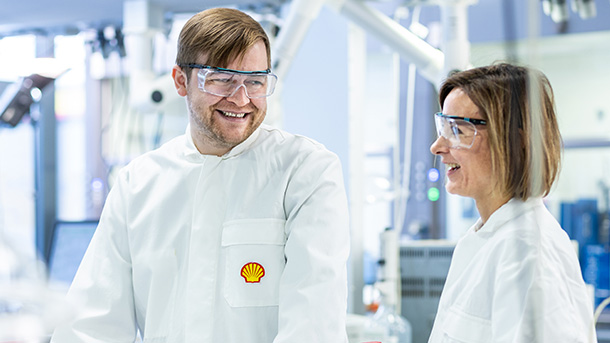Safety
Safety, along with our core values, underpins our Powering Progress strategy. We aim to do no harm to people and to have no leaks across our operations. We call this our Goal Zero ambition.
We seek to improve safety by focusing on the three areas where the safety risks associated with our activities are highest: personal, process and transport. We strive to reduce risks and to minimise the potential impact of any incident, with a particular emphasis on the risks with the most serious consequences if something goes wrong.
Our multi-year process of refreshing our approach to safety for all employees and contractors started in 2020. This approach is rooted in a consistent focus on human performance. We ask people at Shell to apply a learner mindset, by which we mean the belief that we can always improve, enhance individual capabilities, learn from mistakes and successes, and speak up freely without repercussions.
In practice, our refreshed approach to safety is about enhancing how we prepare for and conduct high-risk activities by, for example:
- executing frontline work: build an environment of trust and learning, strengthen team leaders' coaching and engagement skills, and embed pre-start work preparations such as those developed by the International Association of Oil & Gas Producers (IOGP);
- applying acknowledged industry safety tools: in 2022, we moved from the Shell Life-Saving Rules to industry-wide Life-Saving Rules so that Shell employees and contractors are working on the same basis to manage risks; and
- using technology and digital tools to reduce exposure, identify conditions that may lead to serious incidents and fatalities, and enhance learning.
It is also about capturing more insights from performance analysis by, for example:
- using metrics focused on serious injuries and fatalities (SIF) and the lessons that we can derive from high-potential incidents and events that could have led to SIF incidents;
- seeking to capture underlying causes and systemic patterns through incident investigations; and
- aiming to embed lessons learned from the above points in training and instructions for work preparation and execution.
In 2023, we integrated this safety approach into the plans of our facilities, projects and functions. Many of our non-operated ventures and companies that are operated by Shell, but not integrated into our systems, have also chosen to implement elements of our refreshed approach.
Technology and safety
We are establishing connected ecosystems for data gathering, analysis and reporting through the digital transformation of our equipment. Digitalisation helps to automate processes so that they can be supported remotely, for example, by quickly taking action in the event of unsafe situations.
For example, T-Pulse, an AI-automated safety monitoring solution developed by the Indian company Detect Technologies, uses CCTV feeds to detect unsafe situations, such as fall and fire hazards. It identifies and reports real-time safety issues and unsafe behaviours to enable urgent conversations, followed by coaching for improvement.
Shell started to deploy T-Pulse in 2020, and had installed it at 13 sites by the end of 2023. By then, it had created alerts for more than 10,000 situations with potential safety issues. Analysis showed that in more than 500 of those situations, an intervention helped to avoid potential significant harm to people or leaks to the environment.
Personal safety
We continue to strengthen the safety culture and leadership among our employees and contract staff. This aligns with our focus on caring for people.
When our employees and contractors perform tasks, we expect them to consider the hazards that could potentially cause serious harm and the effectiveness of the barriers in place to avoid serious harm. We run safety awareness programmes, and hold an annual global Safety Day to give employees and contractors time to discuss safety culture on the frontline, reflect on how to prevent incidents, and how to improve performance.
In 2023, the focus was on "failing safely", which means we recognise that people make mistakes and that our barriers need to be capable of managing the impact of those mistakes to prevent harm.
In 2023, we achieved safe construction, commissioning and start-up of a floating production unit (FPU) for the Shell-operated Vito field (Shell interest 63.1%) in the US Gulf of Mexico. The fabrication of another FPU, Seatrium, for the Shell-operated Whale field (Shell interest 60%) in the Gulf of Mexico, was completed in 2023 after 12 million hours without fatality or serious injury.
Process safety
Process safety management is about keeping hazardous substances inside pipes, tanks and vessels, and ensuring that well fluids are contained during construction, interventions (such as maintenance) and incidents. Our Asset Integrity and Process Safety Management Principles guide our actions from project design and construction throughout the life cycle of facilities to keep sites, employees and contractors safe.
Our global standards define our requirements for the identification of process safety hazards and the design of controls to prevent the release of the identified hazards. For example, offshore wells must be designed with at least two independent barriers in the direction of flow to reduce the risk of an uncontrolled release of hydrocarbons. In the event of a spill or a leak, our standards require the use of independent recovery measures to reduce the likelihood of a release becoming catastrophic. We regularly inspect, test and maintain these barriers so that they meet our standards.
Collaboration with industry stakeholders, customers and suppliers is critically important to achieve our process safety ambitions. We focus on disciplined delivery of our work processes. At the same time, we seek to make these work processes more effective through active learning, a continuous improvement mindset and striving to create a working environment where everyone feels safe to speak up.
The three core pillars to help improve our process safety performance are:
- to simplify our risk management by standardising our risk assessment tools and make more use of digitalisation;
- to embed human performance factors in frontline work execution; and
- to shift the process safety indicators from lagging to leading indicators with a greater focus on the risk potential.
Preparing for emergencies
We prepare and practise our emergency response to incidents, such as a spill or a fire. This involves working closely with local emergency services and regulatory agencies to jointly test our plans and procedures. Shell requires key operating facilities to test their emergency response preparedness every three years. In 2023, we held four large-scale emergency response exercises at certain assets we operate in Trinidad and Tobago, Singapore, the UK and the USA. We also supported one large-scale emergency response exercise at an asset in Argentina, owned and operated by Raízen, one of our joint ventures (Shell interest 44%).
We have set up three regional Emergency Response Leadership Councils for the Americas; Asia-Pacific; and Europe, the Middle East, and Africa. The councils bring together experts from different teams that need to be able to work together seamlessly in case of emergencies. In 2023, the councils' annual conferences covered a variety of topics such as business continuity, cyber security, performance under stress, battery storage emergencies, use of drones and competence development.
Transport safety
Transporting large numbers of people, products and equipment by road, rail, sea and air poses safety risks. We seek to reduce these risks by developing best-practice standards within Shell. We also work with specialist contractors, industry bodies, non-governmental organisations and governments to find ways of reducing transport safety risks.
Road safety
In 2023, Shell employees and contractors drove around 464 million kilometres on company business. Commercial road transport accounts for most of this but only two of this year's 18 severe motor vehicle incidents (SMVIs) occurred during commercial road transport. An SMVI is defined as a motor vehicle incident resulting in a fatality, serious injury or a rollover of a vehicle. Nine SMVIs occurred during business travel, two during commercial transport activities and the remaining seven during on-site operations. There were no road transport-related fatalities in 2023.
In 2023, about 30,600 Shell employees and individual contractor colleagues were identified as driving on work-related business, and therefore required defensive driver training (DDT). In 2023, we launched an internal virtual DDT course to align better with industry partners' approaches.
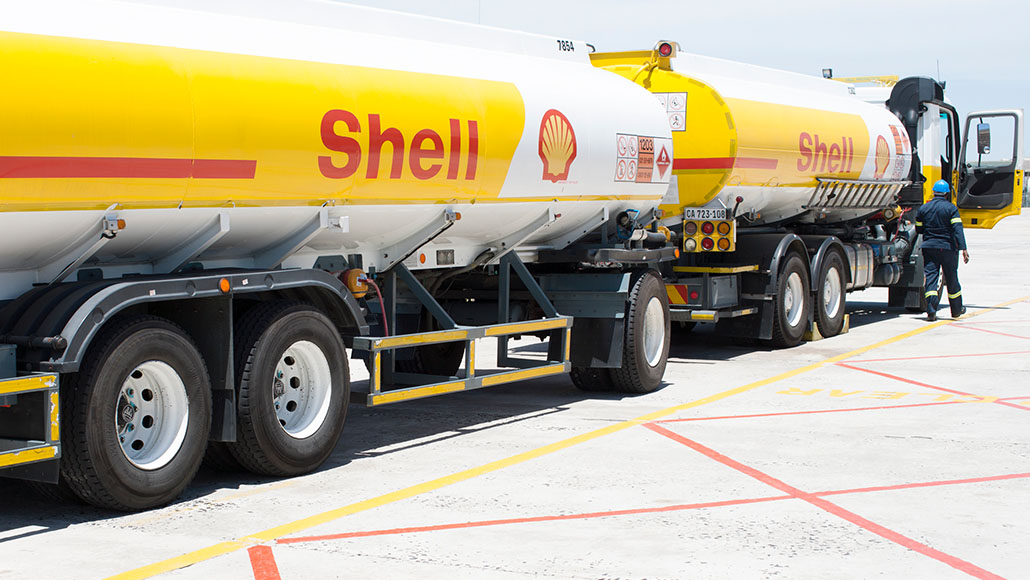
Addressing driver fatigue
Falling asleep behind the wheel or being distracted while driving are amongst the leading causes of road accidents worldwide. We worked with four universities to identify suitable devices and started deployment in 2020, at the Shell-operated QGC facility in Australia.
By the end of 2023, we had installed active fatigue and distraction detection (AFDD) devices in around 3,380 vehicles operated by Shell or our contractors in countries where road transport risks are highest. In 2024, we will continue to install AFDD devices in vehicles operated by Shell, including both contractor and Shell-owned vehicles. The AFDD devices have recorded and intervened in at least 130 high-risk fatigue events, preventing what could have resulted in motor vehicle incidents if the devices had not alerted the drivers.
Safety at sea
At the end of 2023, we managed and operated a global fleet of 25 tankers, liquefied natural gas carriers and the world's first liquefied hydrogen carrier, the Suiso Frontier.
Air safety
In 2023, for Shell-operated ventures, our owned and contracted aircraft flew more than 38,000 hours and safely carried more than 281,000 Shell employees and contractors to destinations across the world. In addition, remotely piloted aircraft safely completed almost 3,400 flight hours on surveys, inspections, emissions surveillance, and security and incident response.
See our website shell.com for more information on transport safety.
Working with others
We work with contractors and suppliers to help them understand our safety requirements. We strive to improve the energy industry's safety performance by sharing safety standards and experience with other operators, joint-venture partners, contractors and professional organisations.
In 2023, senior executives from Shell's 23 major global contractors joined Shell executives in Norway for our annual Contractor Safety Leadership workshop. Focus areas of discussion were worker welfare and human rights, mental health and technology solutions for safer work at the frontline.
Also in 2023, leadership teams from 25 Shell joint ventures and companies newly acquired by Shell met in the Netherlands to discuss topics such as worker welfare and related industry standards, and the importance of alignment on safety.
Contractor safety
Executives from Shell and our major contractor companies have collaborated on Shell's contractor safety leadership (CSL) programme since 2014. The programme seeks to identify strategies and practical ways to improve a shared safety culture and achieve our Goal Zero ambition of no harm and no leaks.

